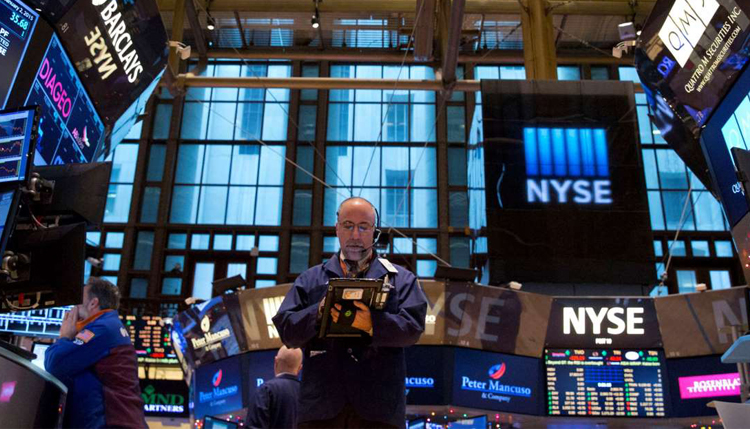U.S. stocks slipped on Wednesday as Wall Street digested mixed quarterly earnings results as well as President Donald Trump’s second State of the Union address.
The Dow Jones Industrial Average closed 21.22 points lower at 25,390.30 and ended a three-day winning streak.
The S&P 500 fell 0.22 percent to 2,731.62, snapping a five-day winning streak, while the Nasdaq Composite declined 0.36 percent to about 7,375.28. Shares of tech-related companies like Facebook, Amazon, Netflix, and Google-parent Alphabet all declined at least 0.36 percent.
Wednesday’s move down comes a day after the major indexes rose broadly. On Tuesday, the Dow gained more than 150 points, while the S&P 500 and Nasdaq rose 0.47 percent and 0.7 percent, respectively.
More than 55 percent of S&P 500 companies have posted quarterly results through Wednesday morning, according to FactSet. Of those companies, 68 percent have beaten expectations.
“We’re at right about half time for this earnings season and the picture is anything but clear,” said Mike Loewengart, vice president of investment strategy at E-Trade. “We’ve enjoyed a heck of a rally so far this year, but that can easily be disrupted if more companies miss the mark on earnings.”
General Motors reporting better-than-expected results on Wednesday, sending its shares up by 1.6 percent. Walt Disney and Snap also reported better-than-forecast results. Disney slipped 1.1 percent, however, while Snap surged 22 percent.
Eli Lilly and Cummins, meanwhile, reported earnings that missed expectations. Ely Lilly dipped 0.95 percent while Cummins fell 0.3 percent.
“The real story is about the earnings, but not the fourth-quarter earnings. It’s about the guidance. That has been very weak,” said Jeffrey Kleintop, chief global investment strategist at Charles Schwab. “Expectations for the first and second quarter of this year are near zero. Those expectations were double digits going back to Sept. 30, which wasn’t that long ago.”
“That, I think, is weighing on the market,” Kleintop added.
Trump addressed issues like infrastructure spending, drug pricing and trade. He also appeared to soften his tone around funding for a border wall along the U.S.-Mexico border. Trump reiterated his belief the U.S. needs a border wall, but did not declare a state of emergency as he had previously threatened to do.
The president also said China and the U.S. are working on a new trade deal, but noted it must “include real, structural change to end unfair trade practices, reduce our chronic trade deficit, and protect American jobs.”
Trade worries have been an overhang for global capital markets for nearly a year as China and the U.S. slap tariffs on billions of dollars worth of their goods. The two countries have set an early March deadline to come up with a permanent deal.
Treasury Secretary Steven Mnuchin told CNBC’s “Squawk Box” on Wednesday that talks between the two countries have been “very productive” so far. “We’re putting in an enormous amount of effort to hit this deadline and get a deal. That’s our objective.”
Source: CNBC













